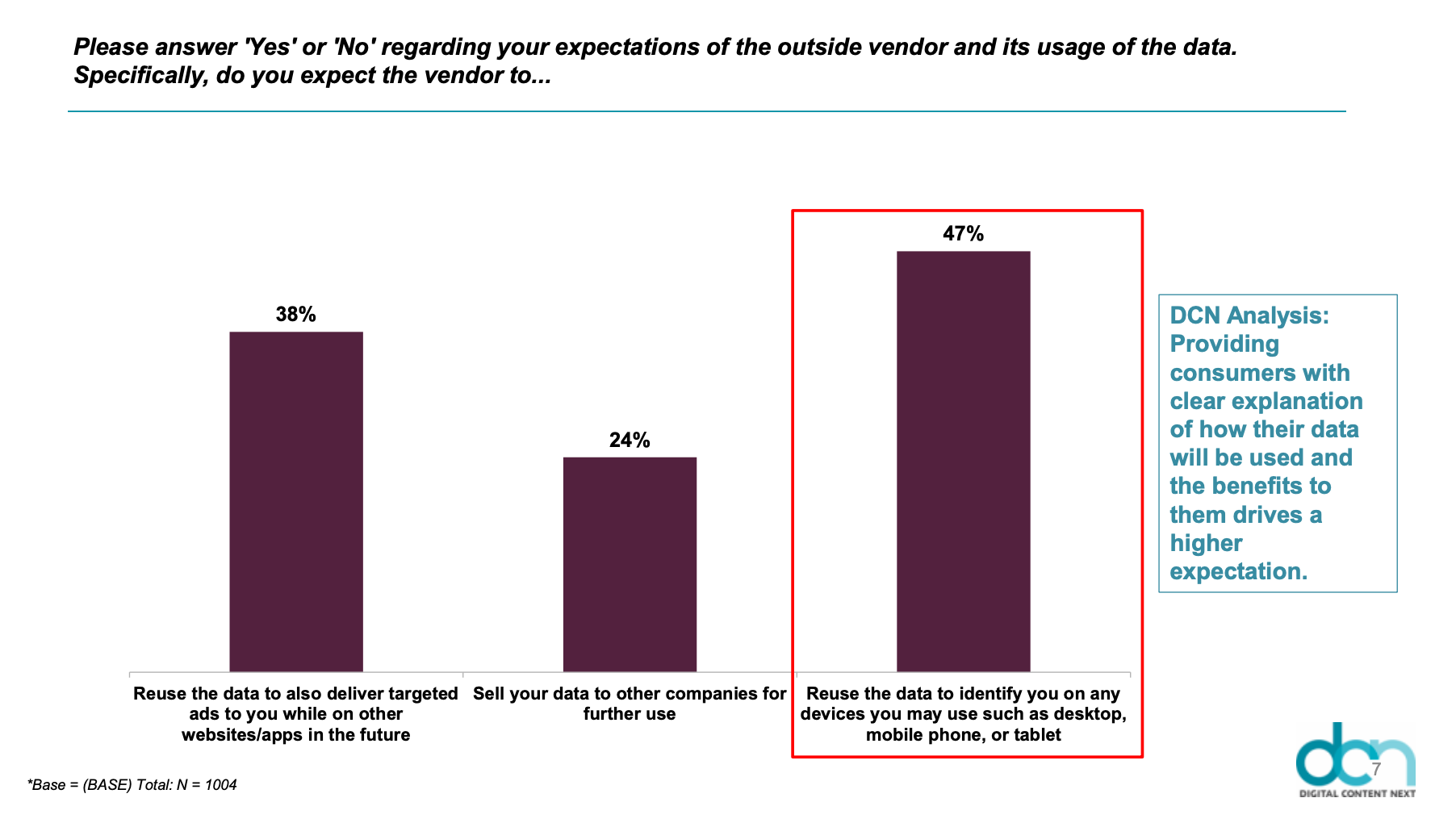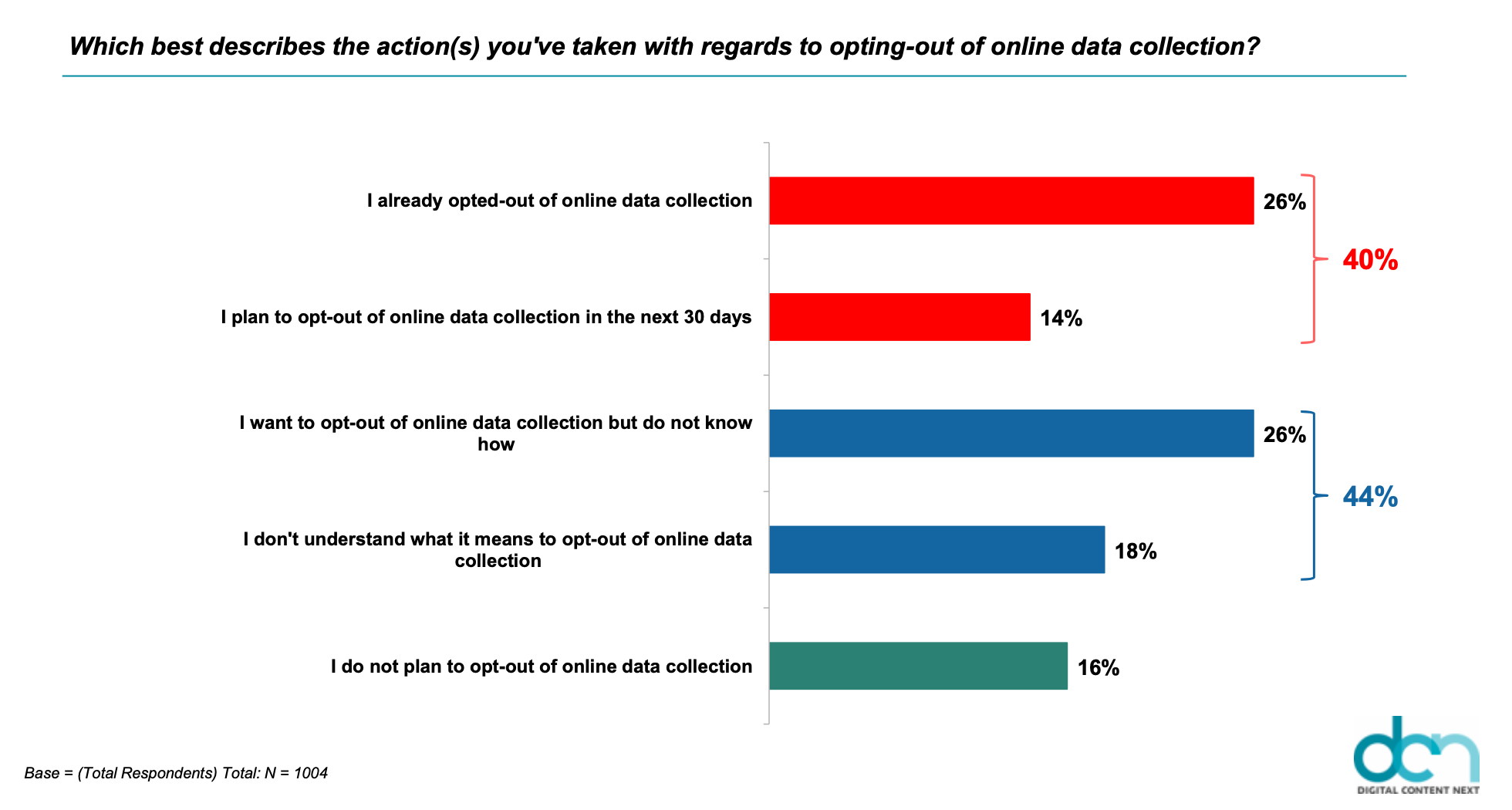
With the California Consumer Privacy Act now the law, digital media companies are reevaluating their online data collection policies and the procedures they use to ensure compliance. Many in the industry see the CCPA as the most comprehensive consumer privacy law and a benchmark for other states to follow. It’s a call to reassess the collection and use of personal information in the digital media ecosystem. That’s one reason it’s important to review how consumer expectations align — or don’t — with current online data collection practices.
To this point, Digital Content Next, the trade association of major digital publishers, surveyed a nationally representative sample of U.S. adults in the about their expectations around online privacy and how they engage with online tracking. Over the past few years, we’ve done similar surveys to better understand consumer expectations for both Google and Facebook, as public examination of tracking by major tech platforms took center stage.Today’s findings show that, overall, consumers do expect websites and apps to collect data about them in order to personalize, protect, and improve their experience. In sharp contrast, though, consumers do not expect outside vendors to collect data about them for reuse or sale.
| Do you expect a website/app to collect data about your online activities in order to… | % saying yes |
| Protect you from fraud and malicious activity | 59% |
| Help improve the website/app overall | 55% |
| Identify if you are a paid subscriber or member when you log into the website/app | 54% |
| Offer a personalized experience | 49% |
| Share with outside vendors to deliver you targeted ads while you are on its website/app to help fund its content | 32% |
When consumers are asked specifically about their expectations about the data practices of outside vendors, fewer say they expect the future reuse (38 percent) or selling (24 percent) of their personal data. Interestingly, when they are given a clear explanation of how their data will be used and the benefit — for example, collecting online data to identify consumers across devices — their expectations are more aligned with the practice (47 percent). It’s important to distinguish whether a company is operating as an outside vendor or third party or whether its making a specious claim to operate as a first party due to tags they place on a website or app.

Consumers’ awareness of their ability to opt out of data collection is relatively low. Only half of all U.S. adults (52 percent) said they were aware of ways they could choose not to participate in online data collection. The reality is many consumers have only a limited understanding of what it means to “opt out,” not just how to do so. In fact, fewer consumers have either opted out of online data collection or say they will in the next 30 days (40 percent combined) than those who either don’t know how to opt out or don’t understand what it means to do so (44 percent combined).

For those opting out of online data collection, the top consumer actions remain cookie-related — deleting browser cookies on a regular basis or turning them off — followed by turning on “Do Not Track” and installing an ad blocker. Unfortunately, deleting cookies or turning on “Do Not Track” doesn’t completely remove the consumer from online data collection.
In the former case, deleting cookies has the frustrating (and likely unintended) consequence of logging the user out of news and other subscription sites and depersonalizing experiences consumers are comfortable with, like a weather site knowing their location in order to provide a forecast. In the latter, privacy policies shows that most of the industry, especially third-party ad tech vendors, ignore “Do Not Track”, as there’s no incentive to move independently. The new CCPA regulation may change this, raising the bar for everyone. And that third-most popular method — installing an ad blocker — throws the baby out with the bathwater for publishers and their advertisers.

As a result of opting out of online data collection, consumers expect greater privacy, an improved online experience, and enhanced security.

These findings highlight the need to align data collection practices with consumer expectations. While consumers understand the need for websites and apps to collect some amount of user data, there’s a major disconnect with third parties selling or reusing this data in the future. Offering seamless and simplified controls is an important part of the compliance process and — arguably more importantly — of preserving and growing the trust of publishers’ audiences.
Rande Price is director of research at Digital Content Next, a trade association of major digital publishers.